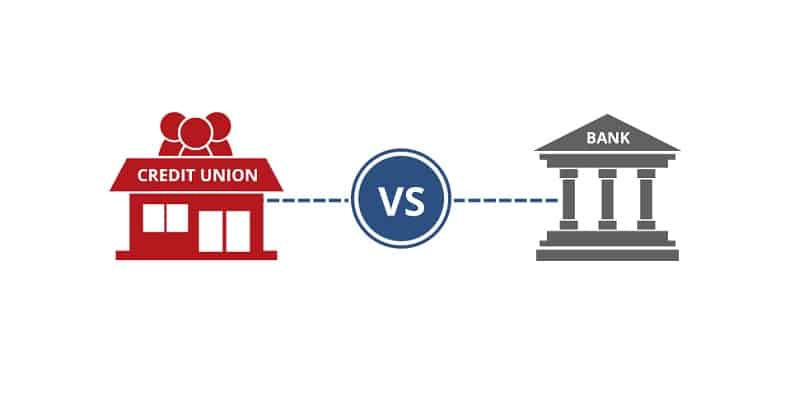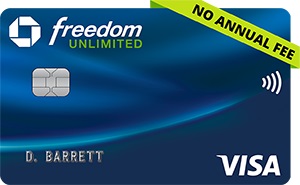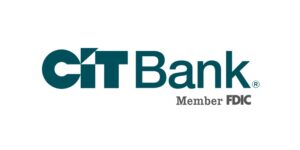 When it comes to building and establishing your financial health, many people look to banks for services such as checking accounts, savings accounts and/or personal loans. However, what are the differences between a bank and a credit union?
When it comes to building and establishing your financial health, many people look to banks for services such as checking accounts, savings accounts and/or personal loans. However, what are the differences between a bank and a credit union?
Credit unions are not-for-profit organizations that operates to provide their members with selective rates and solutions while offering superior customer services and convenient products. However, credit unions do require their members to pay a fee upon membership as well as meeting specific requirements to get started.
For those of you are interested in opening a new banking account, be sure to check out our Bank Bonuses table for more information. In addition, you can also check out other great promotions from banks such as HSBC Bank, Chase Bank, Huntington Bank, Discover Bank, TD Bank, BBVA Compass Bank or CIT Bank.
 |
 |
 |
Credit Unions vs. Banks Insight
When deciding between a bank and a credit union, it is important to note and understand how they are structured as well as determining which caters to your financial needs for the long run. Although both banks and credit unions operate under similar laws in regards to available products to consumers, the experience and benefits you get out of them can actually differ a lot from one another.
Structurally, a credit union is a financial corporation that is operated and owned by the members who have deposits at the bank. The benefits and features associated are catered towards their specific members hence allowing for a better customer service and user experience. However, a commercial bank is a for-profit organization, meaning money held in a bank are often trades on the stock market. Banks are owned by shareholders who’s main focus is to turn a profit. A depositor can be defined as someone who deposits their money at the bank. In this case, the goal is to earn as much of a return as possible on those deposits.
Although the structural integrity of each could not be more different, it is important to note that banks are insured by the Federal Deposit Insurance Corporation (FDIC) while credit unions are insured by the National Credit Union Administration (NCUA). With that said, let’s break down each individual differences associated with both a credit union and a bank.
Credit Unions vs. Banks Differences
Eligibility:
- You are eligible to open an account at a bank if you have a valid state issued form of identification as well as having enough funds to cover the minimum balance opening or deposit amount required to open an account. Depending on the account you are opening, you can either open online or in person.
- On the contrary, to join a credit union, you have to meet a specific set of restrictions based on affinity (membership to an organization), geography, or some other affiliation. Once you qualify, you qualify for life even if the affiliation changes.
Products and Services:
- Typical to most banks, you will find convenient products such as checking/savings accounts, CDs, loans, credit cards. The services associated with the products are designed to cater to the masses while offering you quick access through digital banking services. You can expect to find features such as e-Statements, online banking and mobile deposits.
- Credit unions offers the same types of financial products as banks. However, credit unions often prides themselves on better customer services and lower fees associated with your accounts, but have higher interest rates.
Deposit Insurance:
- FDIC insures bank deposit accounts up to $250,000 per owner. Insured accounts include single bank accounts, joint accounts, certain retirement accounts and more.
- Federal credit unions on the other hand, are insured by the NCUA through its National Credit Union Share Insurance Fund. Like the FDIC, the NCUA insures individual deposit accounts up to $250,000.
Rates and Fees:
- Because brick-and-mortar commercial banks have to make a profit for their shareholders, they tend to have higher bank rates. However, banks typically pay their customers lower interest earnings on deposit accounts. When you introduce online banks into the comparison, high yield savings accounts and money market accounts will have higher rates because online banks don’t pay for overhead like traditional banks. Instead, the savings earned is passed on to customers.
- On the contrary, since a credit union is owned by the depositors, members tend to pay higher interest rates on savings accounts, especially high-yield products such as money market accounts and CDs. However, credit union rates tend to be higher on deposit accounts. While credit union beats out regular banks in this aspect, they still can’t compete with the economics of online banks.
Business Structures:
- Because banks are for-profit, they tend to focus on commercial loans and services to earn the most money they can in the shortest amount of time. Banks lend customers’ money to other people and businesses and get interest payments in return. Banks also pay interest to customers for depositing their money.
- Given the fact that credit unions are owned by depositors, credit unions are more member oriented. As a result, they tend to focus the products and services on their customers needs, instead of catering to the masses like banks. Also, although credit unions do make money, they share those profits with members by giving members better rates and low fees.
Credit Unions vs. Bank Locations:
- A lot of major financial institutions such as Chase, HSBC, Huntington as well as Wells Fargo have thousands of brick-and-mortar branches and ATMs across the nation. However, online-only banks such as Discover Bank and CIT Bank are associated and connected to large ATM networks that offers members access without having to walk into a brick-and-mortar location.
- Credit Unions are typically more spread out and across specific cities and counties depending on your location. Because they are operated by their members, credit unions are more limited geographically. As a result of this mild inconvenience, many credit unions will offer reimbursements as incentives.
Credit Unions vs. Banks Similarities
- Insured deposits: Whether you chose to go with a bank or credit union, your bank accounts are insured by Federal Deposit Insurance Corporation (FDIC) whereas the National Credit Union Administration (NCUA) insures credit union deposits. Both the FDIC and NCUA are backed by the full faith and credit of the U.S. government and individual accounts are protected up to $250,000.
- Product selection: The products available across banks and credit unions are essentially the same. The concept behind each available products is to create an easy access to your financial solutions through the following products:
- Business bank accounts
- Checking accounts
- Savings accounts
- Certificates of deposit (CDs)
- Home loans (including purchase loans and refinancing)
- Auto loans for new or used vehicles (including motorcycle and RV loans)
- Money market accounts
Conclusion
Before you settle on a bank or credit union, make sure you prioritize aspects that are the most important to both your banking and investment solutions. Would you prefer higher rates but lower interest earnings? How about great customer services vs. easy access across the nation? Researching your options and honing in on your wants and needs are will ensure you get your financial needs met.
To wrap things up, remember that banks are FDIC insured whereas credit unions are NCUA insured. Meaning your bank accounts are protected by the U.S. government up to $250,000. Additionally, credit unions are non-profit and owned by their depositors while banks are for-profit organizations.
All in all, both credit unions and banks are great institutions when it comes to your financial solutions. Both will offer exceptional services and features that will help guide you every step along the way. To see all the current promotions available, be sure to check out our list of Bank Bonuses for all your banking needs. Additionally, you can also check out our Referral Bonuses, Bank Rates as well as our CD Rates!
 The Chase Freedom Unlimited® Card offers a $300 bonus after spending $500 on purchases in your first 3 months from account opening. Enjoy 0% Intro APR for 15 months from account opening on purchases and balance transfers, then a variable APR. In addition, you can earn: • 6.5% cash back on travel purchased through Chase TravelSM, our premier rewards program that lets you redeem rewards for cash back, travel, gift cards and more • 4.5% cash back on drugstore purchases and dining at restaurants, including takeout and eligible delivery service • 3% on all other purchases (on up to $20,000 spent in the first year). After your first year or $20,000 spent, enjoy 5% cash back on travel purchased through Chase TravelSM, 3% cash back on drugstore purchases and dining at restaurants, including takeout and eligible delivery service, and unlimited 1.5% cash back on all other purchases. There is no minimum to redeem for cash back & your cash back rewards do not expire as long as your account is open. This card comes with no annual fee and you'll get a free credit score that is updated weekly with Credit JourneySM. Member FDIC |



